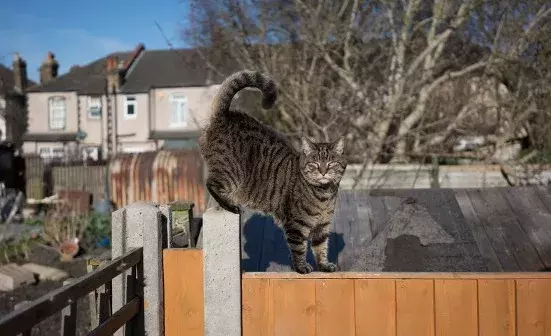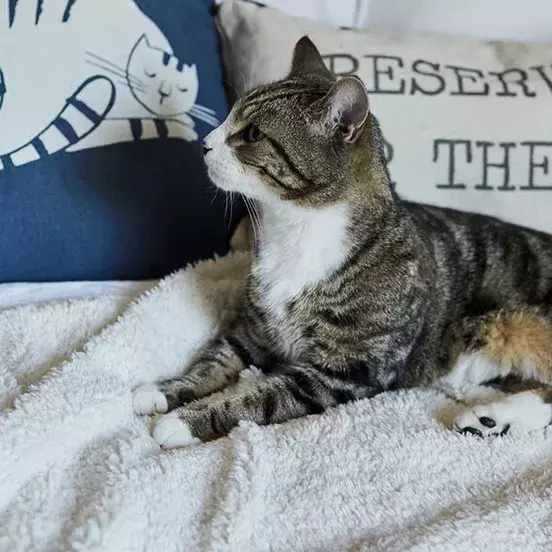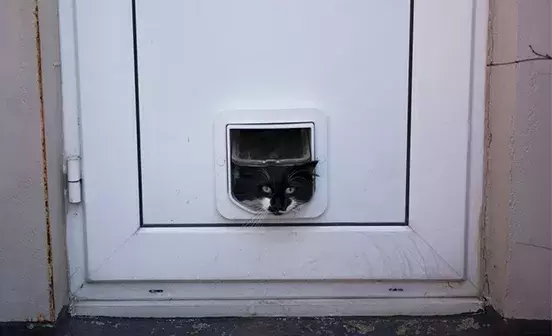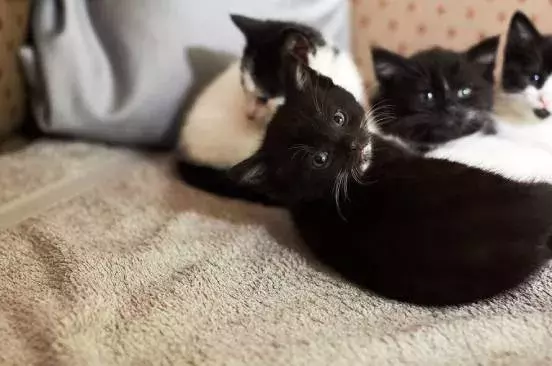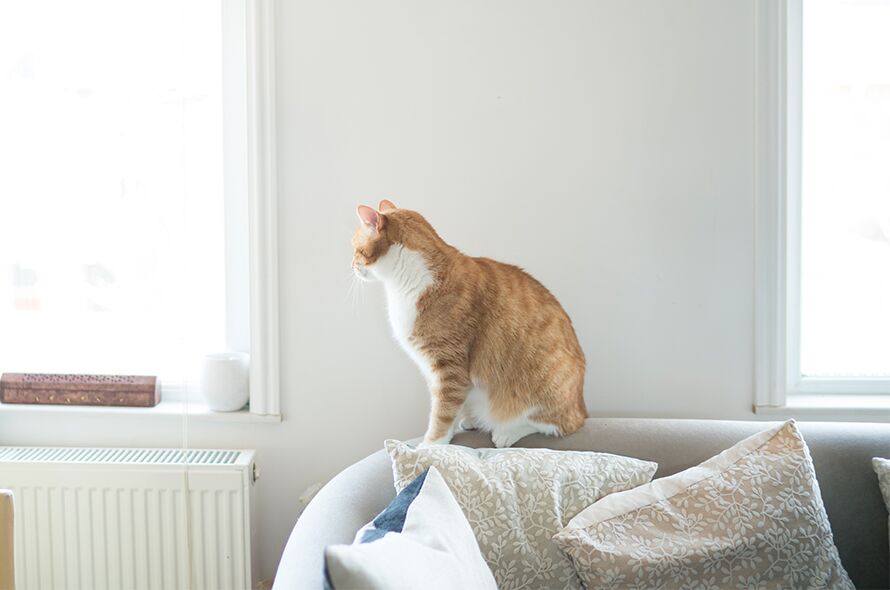
Holiday time can be a stressful time for your cat. When you go away it disrupts their normal routine and they can become unsettled. There are several options to choose from when it comes to looking after your cat when you go on holiday to help minimise that stress.
LEAVE YOUR CAT AT HOME, AND:
- Ask a friend, family member or neighbour to care for them. We would recommend they visit twice a day to check everything is OK, spend some time with your cat, feed them, provide fresh water, and clean their litter trays.
- Speak to your vet and find out whether there are any nurses in the practice who live locally and would be able to visit twice a day to care for your cat. This would be particularly helpful if your cat is elderly or needs medication at set times. A nurse would be able to see any signs that your cat is unwell and respond straight away. If a nurse isn’t available, then you can discuss this with a pet sitting company so that they know your cat has specific needs and requirements. It is also a good idea to inform your vet when you will be away and who will be caring for your cat in your absence.
- Use a pet sitting service. You can either arrange for a sitter to visit a few times a day or ‘live-in’ and care for your cat while you’re away. There are lots of options and you will have the opportunity to interview prospective carers first so you can meet them and allow them to meet your cat in advance. Professional cat sitters will have appropriate insurance and be happy to provide references from existing clients.
Or you can place your cat into a boarding cattery.
HOW DO I MAKE THE BEST CHOICE FOR MY CAT WHEN I GO ON HOLIDAY?
The best option for your cat will depend on their temperament. If your cat is confident and spends a lot of time outside, it may be better to let them stay at home.
Quieter, more nervous cats may feel like they’ve been left alone, and visits from people they don’t know at random times could potentially add to their anxiety. These cats may feel better spending the time at a reputable and secure cattery.
If your cat is fairly independent, it should be fine to arrange for a neighbour, friend or member of the family to pop in twice a day to provide food, clean any litter trays and check that all is well.
Some older cats really need their routines so a visit to a cattery would be potentially distressing for them, particularly if this is something that they don’t do on a regular basis.
If you don’t have someone who you can ask to do this for you then you can consider a pet sitting company.
HOW DO I CHOOSE A GOOD CATTERY?
There are some very good boarding catteries in the UK, but you will need to do your research to ensure the one you choose has high standards of cleanliness and care.
It can be worth getting recommendations from other cat owners locally but always check for yourself when making a decision about your cat’s care. Popular catteries will always get booked up early so be prepared to do your research far in advance of your holiday.
Here are a few tips to help you:
WHEN YOU FIRST CONTACT THE CATTERY
- Make an appointment to view the cattery. If the owner refuses to show you the premises, it’s a good sign you should look elsewhere.
- Try to find a cattery that only takes in cats, as opposed to a facility which houses both cats and dogs.
WHEN YOU VISIT THE CATTERY
- Does the owner give you a warm welcome? Do they seem well informed on cat care and running a cattery?
- All catteries should be licensed by the local authority so don’t be afraid to ask to see their license.
CHECK THE FACILITIES
- Check out the surroundings, are they neat and clean?
- Ask the owner what steps are taken to quarantine sick animals (some catteries have a separate enclosed isolation pen).
- Ask to see the food preparation area and the area where the litter trays are cleaned (these should be two separate places).
- Ensure there are separate utensils (e.g. Food and water bowls, litter trays, litter scoop) for use with each pen and each different cat.
- Completely indoor catteries should be avoided as they can be difficult to ventilate and it’s easier for airborne diseases to spread. Catteries with access to secure outdoor space are much more enriching and entertaining.
LOOK AT THE ACCOMMODATION
- The cat accommodation for each cat should have a separate enclosed and insulated sleeping area and an individual exercise run. This should be warm, dry and secure and big enough to accommodate food, water, scratching posts, litter tray, toys and an area to exercise. There should be larger pens available to allow cats from the same household to be kept together.
- The pens should be heated in the winter and well ventilated in the summer with plenty of shade.
- There should be an outer enclosed corridor leading to each pen that is securely locked at all times to provide additional security.
- There should be full height ‘sneeze barriers’ between each pen to prevent the spread of airborne diseases.
- Cats should have somewhere to hide within the pen and a high shelf for resting.
- A nice, interesting view from the outside run will give the cats something to look at during their stay.
- The cattery should have no strong odour, either of cleaning products or faeces or urine.
THE CATS IN THEIR CARE
- When you visit, the cats in residence should look alert and interested. The food bowls should be empty, or a significant amount already eaten to suggest their appetites are good and all is well.
- Pens should be clean and the litter tray should look like it is being changed or emptied regularly.
- A good cattery owner will ask for lots of information about your cat – name, age, eating habits, likes and dislikes, general health, and whether they are longhaired (this shows they understand the need for daily grooming). They should allow you to bring your cat’s own bedding, toys, scratching posts and other items from home to help your cat feel settled.
- You will be asked to provide an up-to-date vaccination certificate and a medical history with full details of any medication or special requirements your cat may have.
If you find a good cattery, and book it in advance, you will be safe and happy in the knowledge that your cat is being well cared for when you are on holiday.
I'M JUST GOING AWAY FOR THE WEEKEND, IS IT OKAY TO LEAVE MY CAT ALONE WITH EXTRA FOOD?
Although you can buy feeding devices that dispense food at regular intervals it’s never advisable to leave your cat completely alone overnight or for the weekend.
Your cat could become ill or be injured while you are away and not have access to help or medical attention.
The RSPCA recommend that no pet is left alone and that all owners have a legal responsibility to provide for their animal’s needs at all times under the Animal Welfare Act (2006).
